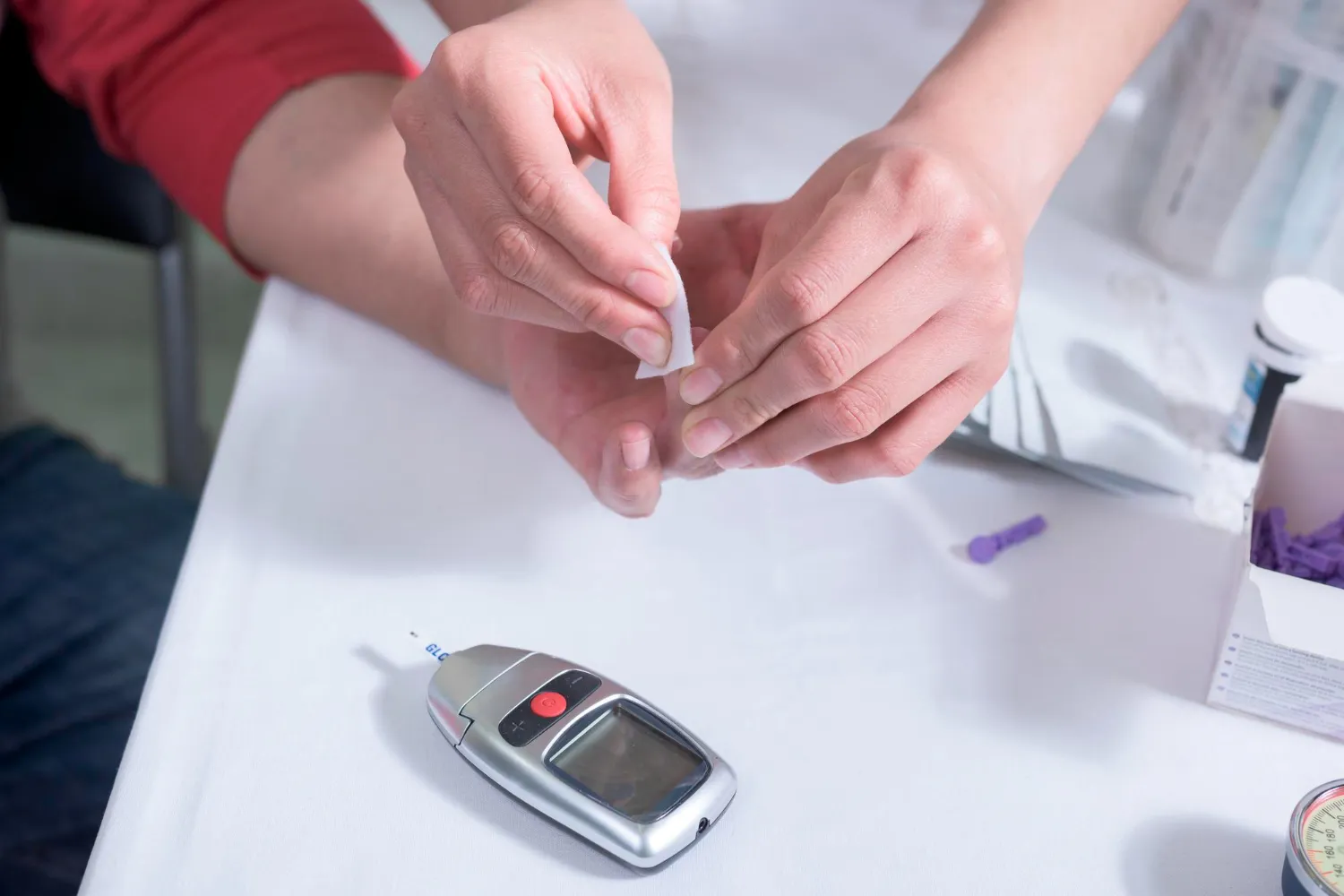Diabetes, particularly type 2 diabetes (T2D), is a global public health concern that affects millions of people worldwide. Characterized by high blood sugar levels, this chronic condition can lead to a myriad of health complications if left unmanaged. Bariatric surgery has emerged as an effective treatment strategy to address obesity and its related complications, including T2D. However, not all patients who undergo bariatric surgery achieve remission of their diabetes, leading researchers to search for reliable predictors of clinical outcomes.
To improve patient care, scientists have been diligently working to identify markers that can reliably predict diabetes remission following bariatric surgery. Among these markers, C-peptide has been recognized for its potential. C-peptide, a substance released into the bloodstream when insulin is produced, is an indicator of beta cell function and insulin secretion. Yet there’s a caveat: creatinine levels, a byproduct of muscle metabolism filtered out by the kidneys, must be taken into account when evaluating C-peptide’s predictive value, as it can influence the accuracy of the C-peptide measurements.
A pivotal pilot study has shed light on a promising new model that might offer more accuracy in predicting T2D remission after bariatric surgery. In a paper recently published in Nutrition, Metabolism, and Cardiovascular Diseases, researchers presented a novel approach that utilizes the ratio of serum C-peptide adjusted for creatinine to predict postoperative diabetes outcomes.
This insightful study involved a cohort of 84 patients with obesity and T2D who underwent Roux-en-Y gastric bypass (RYGB). The researchers meticulously gathered and analyzed data from these individuals both at baseline and following a canonic 6-month postoperative period.
The findings of this study are both significant and promising. A multivariate binomial regression model pinpointed that the ratio of natural logarithm-transformed C-peptide to creatinine (Ln(C-peptide/creatinine)) and age were remarkably associated with T2D remission six months after surgery. Interestingly, the area under the curve for the receiver operating characteristic (AUROC) analysis, which measures the predictive power of the model, was an impressive 0.87 when based on the C-peptide/creatinine ratio and considerably more accurate than the AUROC based solely on C-peptide levels, which stood at 0.75.
Further bolstering the robustness of this model, it was also able to accurately predict the attainment of the target HbA1c level of 7% (53 mmol/mol) with an AUROC of 0.96, indicating high accuracy.
These findings carry transformative potential for personalized T2D management in patients undergoing bariatric surgery. By utilizing the Ln(C-peptide/creatinine) ratio, clinicians could better identify which patients are more likely to achieve diabetes remission and reach glycemic targets. It opens the door to more tailored pre- and post-operative care strategies, maximizing the benefits of bariatric surgery for individuals battling obesity and T2D.
This pioneering study, led by Santo S. Colosimo at the prestigious Oxford Centre for Diabetes, Endocrinology and Metabolism, and conducted with colleagues from various institutions, has set a foundation for further research. However, it is important to note that these findings are from a pilot study. Larger, multi-center studies with longer follow-up periods are needed to validate and refine the predictive model and to ensure its applicability across diverse populations.
The implications of this research are not lost on experts in the fields of bariatric surgery, endocrinology, and metabolism. Dr. Jeremy W. Tomlinson, one of the study’s co-authors, emphasizes the potential of this model to “revolutionize patient selection for bariatric surgery and enable a more predictable surgical outcome regarding diabetes management.” Dr. Simona Bertoli, another contributing author, notes, “This model underscores the importance of considering kidney function in the context of diabetes care, particularly when surgery is involved.”
As the scientific community continues to validate this novel model, patients stand at the brink of what could be a new era in diabetes care – one where precise, predictive tools guide surgical interventions and postoperative management, leading to better outcomes and improved quality of life. This breakthrough brings hope for many as the fight against the twin epidemics of obesity and diabetes wages on.
Conclusion
The study on the novel model for predicting diabetes remission post-bariatric surgery is succinctly described in the article, “A novel model for predicting diabetes remission after bariatric surgery based on the measurement of C-peptide and creatinine in serum: A pilot study,” published in Nutrition, Metabolism, and Cardiovascular Diseases with DOI: 10.1016/j.numecd.2023.12.008. The innovative approach highlights the integral role of personalized medicine in treating complex diseases such as T2D.
References
1. Colosimo, S. S., Martínez-Sánchez, M. A., Balaguer-Román, A., et al. (2023). A novel model for predicting diabetes remission after bariatric surgery based on the measurement of C-peptide and creatinine in serum: A pilot study. Nutrition, Metabolism, and Cardiovascular Diseases, 10.1016/j.numecd.2023.12.008.
2. Schauer, P. R., Bhatt, D. L., Kirwan, J. P., et al. (2017). Bariatric Surgery versus Intensive Medical Therapy for Diabetes — 5-Year Outcomes. New England Journal of Medicine, 376(7), 641–651.
3. Mingrone, G., Panunzi, S., De Gaetano, A., et al. (2015). Bariatric Surgery versus Conventional Medical Therapy for Type 2 Diabetes. New England Journal of Medicine, 366(17), 1577–1585.
4. Dixon, J. B., Zimmet, P., Alberti, K. G., Rubino F. (2011). Bariatric Surgery: An IDF Statement for Obese Type 2 Diabetes. Diabetic Medicine, 28(6), 628-642.
5. Sjöholm, K., Sjöström, E., Carlsson, L. M. S., Peltonen, M. (2015). Weight change-adjusted effects of gastric bypass surgery on glucose metabolism: two- and 10-year results from the Swedish Obese Subjects (SOS) study. Diabetes Care, 38(6), 112–120.
Keywords
1. Bariatric Surgery
2. Diabetes Remission
3. C-peptide
4. Predictive Model
5. Roux-en-Y Gastric Bypass
